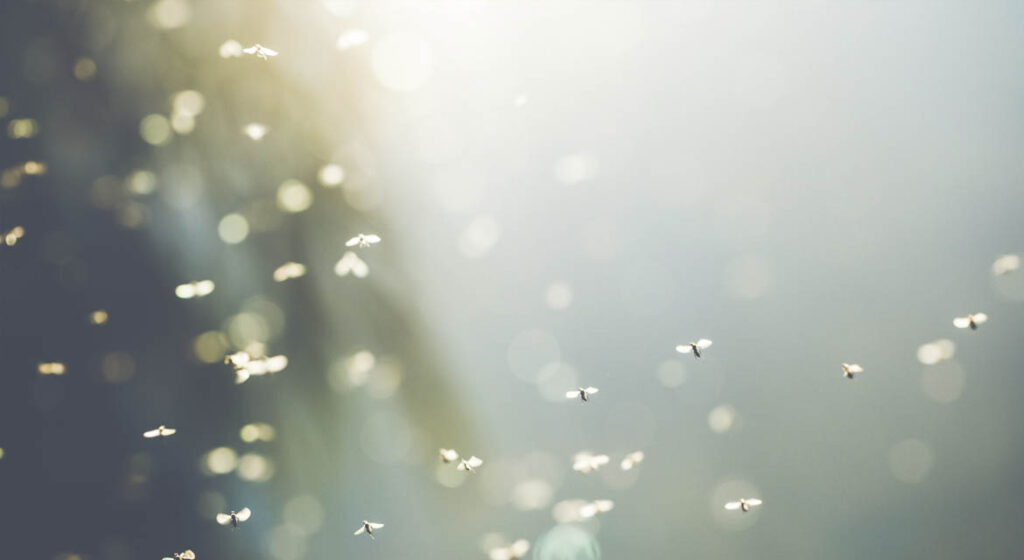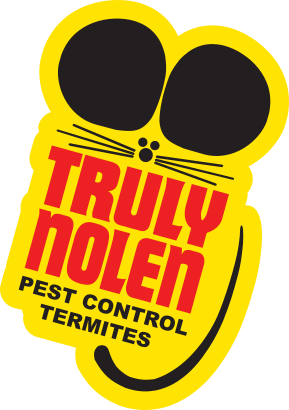
How to Get Rid of Gnats in the Home
Have you noticed an increasing number of tiny flying bugs in your home, possibly around your plants or in your kitchen? These pesky creatures are most likely gnats, and they can be a real nuisance to deal with. But before you can effectively get rid of them, you need to understand why you have an infestation in the first place.
Why Do I Have a Gnat Infestation?
Gnats are attracted to moist environments. If you have any standing water in your home, whether it’s a spilled drink, a leaking pipe, or damp soil in your plants, this can serve as a breeding ground for gnats. Additionally, gnats are attracted to organic matter, such as overripe fruit, vegetable scraps, and dead insects. If you have any of these lying around your home, they could be drawing in gnats.
Another common cause of gnat infestations is poor sanitation. If your kitchen sink is regularly filled with dirty dishes, or if your garbage cans are overflowing with waste, this can be a prime location for gnats to flock to.
There are many different types of gnats, each with their own preferences and habits. For example, fungus gnats are drawn to moist soil, while phorid flies are attracted to decaying organic matter. Understanding the specific type of gnat you’re dealing with can help you identify and eliminate their food sources.
Preventing an Infestation
Preventing a gnat infestation is much easier than dealing with one after it has taken root. Fortunately, there are several steps you can take to minimize the likelihood of an infestation.
Seal Cracks and Openings in Your Home
One of the most effective ways to prevent gnats from entering your home is to seal up cracks and openings. Gnats are tiny, so they can enter your home through even the smallest crevice. Inspect your windows and doors and make sure the seals are tight and there are no gaps around the edges. If there are any gaps, use caulk to seal them up. You may also want to consider installing weatherstripping around your windows and doors to create a better seal.
Keep Your Home Clean
Poor sanitation can attract gnats. Keep garbage cans sealed and regularly emptied, wipe down countertops and surfaces, and do dishes as soon as possible. Eliminate any standing water to prevent moist breeding grounds.
Eliminate Food Sources for Gnats
Keep fruits and vegetables refrigerated or dispose of them when they begin to show signs of overripeness. A good rule of thumb is to never allow anything to sit out for more than a day. Even a tiny amount of rotting organic matter can attract swarms of gnats.

Truly Nolen GUARANTEE
If you’re not completely satisfied, you’ll get a full refund on your most recent service with our 100% money back guarantee.
Clean Your Garbage Disposal
One effective method for cleaning your garbage disposal is to use ice cubes. Simply fill your disposal with ice cubes and run it with cold water for about 30 seconds. The ice cubes help to sharpen the blades and remove any built-up debris. You can also add a few lemon or lime peels to freshen up the smell.
Avoid Overwatering Plants
Monitor soil moisture levels in your indoor plants and avoid overwatering. Gnats are attracted to damp soil and roots, making houseplants a particularly vulnerable spot for infestations to start. Properly drain pots and regularly check for signs of mold or mildew on plant leaves.
DIY Remedies for Killing Gnats
If you’re dealing with a gnat infestation, it can be frustrating trying to get rid of them. However, there are some DIY remedies that can help you eliminate these pesky insects.
Apple Cider Vinegar
One of the most effective DIY remedies for killing gnats is apple cider vinegar. To use this method, grab a small bowl and pour a small amount of apple cider vinegar into it. Then, add a few drops of dish soap and stir the mixture thoroughly. The dish soap helps break down the surface tension of the vinegar, causing the gnats to drown when they come into contact with it. Place the bowl near the gnat-infested area and let it sit overnight. The next morning, you should see a significant reduction in the gnat population.
Sticky Traps
You can easily make your own sticky trap by grabbing a piece of yellow or blue construction paper and smearing it with petroleum jelly. Place the paper near the gnat-infested area and watch as the gnats get stuck to the sticky surface. You can also purchase pre-made sticky traps at your local hardware store and hang them around your home.
Bleach
Finally, to kill gnats in your drains, you can create a mixture of warm water and a cup of bleach. Pour this mixture down your drain and let it sit for a few hours before running hot water down the drain. This will effectively kill any gnats living in your drains, as well as their larvae.
Chemical Remedies for Killing Gnats
Unfortunately, sometimes natural remedies aren’t strong enough to get rid of gnats. In these cases, it may be necessary to turn to chemical remedies.
Insecticide Spray
One common product used to kill gnats is insecticide spray. These sprays contain chemicals that are designed to kill insects on contact, including gnats. Spray it in areas where you’ve seen gnats, such as around windows, near drains, or over plants. Follow the product’s instructions carefully and use the spray only in well-ventilated areas.
Fogger
Another option is to use a fogger or insecticide bomb. These products release a cloud of insecticide that fills the room and kills any gnats that come into contact with it. Foggers and bombs can be effective at getting rid of large swarms of gnats, but they can also be harmful if not used properly. Follow the product’s instructions carefully and leave the room for the recommended amount of time to avoid inhaling any harmful chemicals.
Chemical Drain Cleaner
Chemical drain cleaners can also be effective at killing gnats that are breeding in your drains. These products contain harsh chemicals that dissolve organic matter, including the gunk and buildup that gnats like to breed in. Use these products with caution, as they can be harmful if they come into contact with your skin or eyes. Wear protective gloves and goggles when using drain cleaner, and follow the product’s instructions carefully.
When to Hire a Professional to Treat a Gnat Problem
While some gnat infestations are minor and easily resolved with DIY techniques, there may be instances when that’s not enough. Here are some situations in which it’s best to hire a professional to treat your problem.
The Infestation Is Severe
If you’ve tried DIY methods and the gnat population continues to grow, the infestation may be more severe than you initially thought. In this case, a professional pest control company can assess the situation and provide more effective treatments to eliminate the gnat population.
The Type of Gnat Is Unknown
There are many different types of gnats, and not all treatments will work on every type. If you’re unsure of the type of gnat you’re dealing with, it’s best to consult with a Truly Nolen professional who can properly identify the pest and recommend an appropriate treatment.
The Infestation Is Affecting Your Health
Some gnats, such as eye gnats and phorid flies, can cause health problems and irritations. If you’re experiencing bug bites or other symptoms, seek help from a Truly Nolen professional who can safely eliminate the problem.
You Have a Busy Schedule
DIY methods can be time-consuming and may require multiple treatments. If you don’t have the time to follow through with these treatments, it’s best to hire a professional who can quickly and effectively handle the situation.
You Want to Prevent Future Infestations
If you’ve had trouble with gnats in the past, a professional from Truly Nolen can help identify the source of the problem and provide preventative measures to avoid future infestations.
Conclusion
Gnats can be annoying, and infestations in your home can be difficult to eradicate. There are several prevention tips you can utilize, such as sealing cracks and openings in your home, keeping your house clean, and eliminating standing water and food sources for gnats. If you employ these tips and an infestation still occurs, there are some DIY pest control treatments you can try, including apple cider vinegar, sticky traps, and bleach. But when DIY treatments aren’t enough, you may need to call in a Truly Nolen professional to take care of the problem and prevent it from happening again.

$50 Off Year Round Pest Control
Truly Nolen is a family-owned company with 85 years of experience providing the best pest control. If you’re not completely satisfied, you’ll get a full refund on your most recent service with our 100% money back guarantee.
Frequently Asked Questions
Why are gnats attracted to my home?
Gnats are typically attracted to moist environments and decaying organic matter. They may be drawn to sources such as overwatered plants, fruit, and food residue, as well as areas with standing water or dampness.
How can I differentiate between gnats and other small flying insects?
Gnats are small, flying insects with long legs and wings. They are often found in swarms and have a characteristic erratic flying pattern. However, it’s important to note that the term “gnat” can refer to different species, including fruit flies, fungus gnats, or drain flies, which may have slight variations in appearance and behavior.
Are gnats harmful to humans?
Most gnats are considered nuisance pests and do not pose significant health risks to humans. However, some species can bite and cause minor irritation or allergic reactions in sensitive individuals. Additionally, gnats can contaminate food and surfaces if they land on them after being in unsanitary environments. Learn More!
How can I get rid of gnats in my home?
To get rid of gnats, it’s crucial to address the underlying breeding and attraction sources. This includes eliminating standing water, fixing leaks, drying out damp areas, keeping drains clean and covered, disposing of overripe fruits and vegetables, and maintaining good sanitation practices. Traps, sticky tapes, or natural remedies like vinegar or fruit fly traps can also help control their populations. Learn more about gnats
Why do gnats seem to appear suddenly in large numbers?
Gnats are prolific breeders, and their populations can increase rapidly under suitable conditions. Sudden appearances of large numbers of gnats are often due to favorable breeding environments, such as overly moist soil in potted plants, spilled liquids, or decaying organic matter, which provide abundant food and breeding opportunities. Proper sanitation and eliminating these sources can help prevent and reduce gnat infestations.

